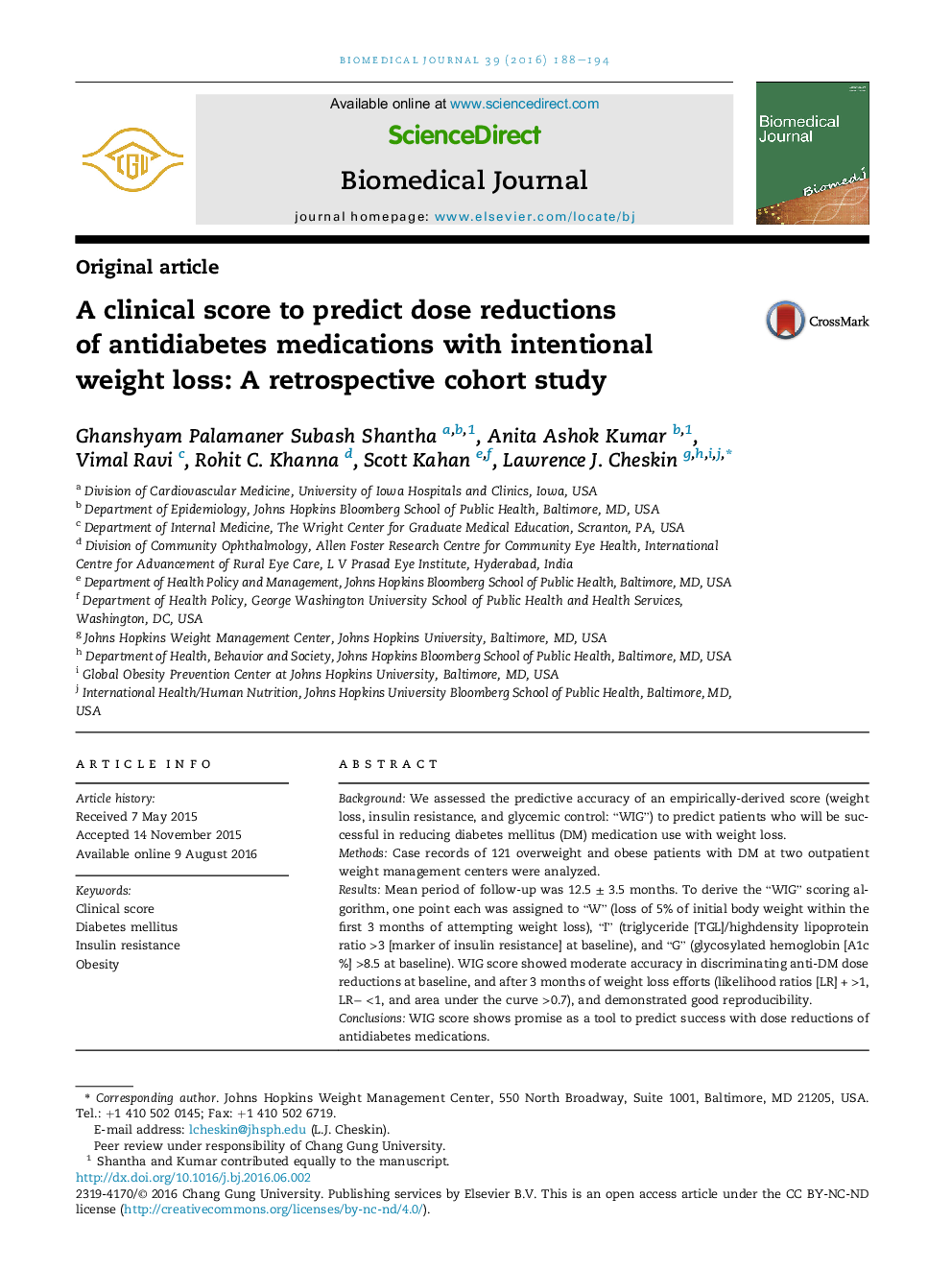| Article ID | Journal | Published Year | Pages | File Type |
|---|---|---|---|---|
| 5524657 | Biomedical Journal | 2016 | 7 Pages |
BackgroundWe assessed the predictive accuracy of an empirically-derived score (weight loss, insulin resistance, and glycemic control: “WIG”) to predict patients who will be successful in reducing diabetes mellitus (DM) medication use with weight loss.MethodsCase records of 121 overweight and obese patients with DM at two outpatient weight management centers were analyzed.ResultsMean period of follow-up was 12.5 ± 3.5 months. To derive the “WIG” scoring algorithm, one point each was assigned to “W” (loss of 5% of initial body weight within the first 3 months of attempting weight loss), “I” (triglyceride [TGL]/highdensity lipoprotein ratio >3 [marker of insulin resistance] at baseline), and “G” (glycosylated hemoglobin [A1c%] >8.5 at baseline). WIG score showed moderate accuracy in discriminating anti-DM dose reductions at baseline, and after 3 months of weight loss efforts (likelihood ratios [LR] + >1, LRâ <1, and area under the curve >0.7), and demonstrated good reproducibility.ConclusionsWIG score shows promise as a tool to predict success with dose reductions of antidiabetes medications.
